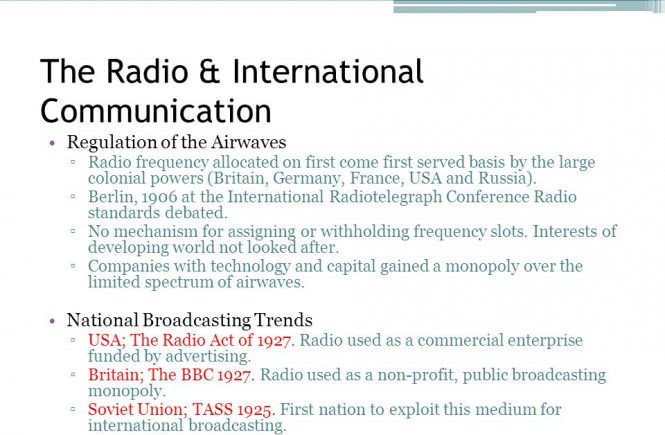As with other new technologies, Western countries were the first to grasp the strategic implications of radio communication after the first radio transmissions of the human voice in 1902. Unlike cable, radio equipment was comparatively cheap and could be sold on a mass scale. There was also a growing awareness among American businesses that radio, if properly developed and controlled, might be used to undercut the huge advantages of British-dominated international cable links (Luther, 1988). They realized that, while undersea cables and their landing terminals could be vulnerable, and their location required bilateral negotiations between nations, radio waves could travel anywhere, unrestrained by politics or geography. At the 1906 international radiotelegraph conference in Berlin, 28 states debated radio equipment standards and procedures to minimize interference. The great naval powers, who were also the major users of radio (Britain, Germany, France, the USA and Russia), had imposed a regime of radio […]
